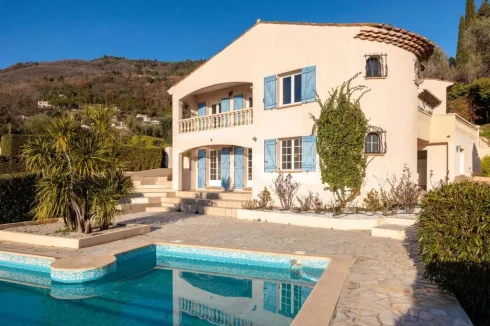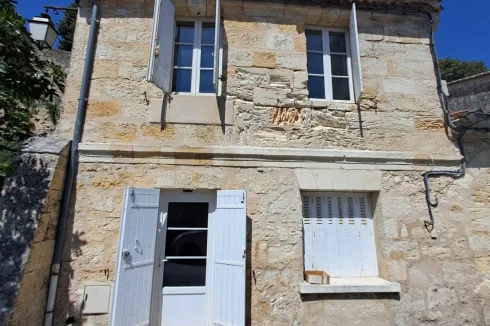Inheritance in France – Transfer of Property
Friday 24 September 2021
A range of notaire fees and taxes are payable in connection with the formalities of a succession, one of which is on the transfer of property.
In France, if an inheritance includes real estate, then recourse to a notaire is obligatory.
The process is frequently complicated, protracted and expensive, even more so for international successions; many notaires are uncomfortable with doing them due to the administrative and legal complexities of it all.
One of their tasks is to prepare a certificate of property, which shows that the property previously owned by the deceased has been transferred to his or her heirs.
This certificate is called an attestation de propriété, but it is also known as an attestation immobilière. The terms are used interchangeably.
John Kitching, a legal expert dealing in French inheritance law states that: "To call the attestation a 'certificate' is to understate it's importance, for it is effectively a legal conveyance of title of the property to the inheritor(s). So instead of an 'acte authentique' that would be used in a sale, in a succession an attestation is used. The document would also be used in the gift of real estate."
The authority used by the notaire to make such a transfer is either the Will left by the deceased, or the legal succession rights of the inheritors under French law. Sometimes it is both.
Once issued, the certificate is sent to the French land registry (service de la publicité foncière) where the transfer of ownership the property is registered.
Properties held under 'tontine' do not need a certificate.
In addition, if within 6 months of the death the inheritors can agree on division of the estate into separate lots, there is no need for the attestation. This process is called 'partage', but is not widely adopted by international owners, as the children normally become joint owners of the property. There is also a notaire charge and taxes payable for a partage.
The information contained on the certificate will be similar to that found on an acte authentique de vente, such as full details of the property, the new owner(s) and its ownership history.
Inevitably, notaire fees are payable by the inheritors, which are frequently not a trifling matter, despite being regulated by the government. The basis on which they are charged is, however, bewildering, as the rules are not clearly set out.
Ostensibly they are based on the gross value of the real estate that was owned by the deceased, although in the case of a married couple it is normally the total value of the property, depending on how the property is held. Certainly, in the case of those with a marriage contract 'communauté universelle' it is the total value of the property. In the latter case, however, a formal transfer is not always required, as we indicate in our Guide to French Marriage Contracts. In the case of death of the last surviving spouse it is possible they are charged on only 50% of the estate, depending on how matters were dealt with on first death.
Our recommendation would be that if the notaire wishes to base the fee on the total value of property held jointly, and you consider it unjustified, you should ask them to justify their position, with appropriate evidence. We would be most interested to hear how you get on.
The fee schedule for the property transfer is shown below. They are applied on a fractional basis. As 20% VAT is charged, we also show the percentage VAT inclusive rate.
| Notaire Fees - Attestation de Propriété | ||
| Value | Rate ex VAT | Rate VAT inc |
| Up to €6,500 | 1.935% | 2.322% |
| €6,500 to €17,000 | 1.064% | 1.2768% |
| €17,000 - €30,000 | 0.726% | 0.8712% |
| +€30,000 | 0.532% | 0.684% |
Thus, for an estate valued at €250,000 the fees payable would be a shade under €2,000.
There are other ancillary charges and taxes to be added to the total and, separately, there are charges for the déclaration de succession, which we will cover in another article.
Certificat de Propriété/Mutation
The attestation de propriété is frequently confused with another document sometimes issued by a notaire, called a certificat de propriété/certificat de mutation.
This document merely records the transfer of non-fixed assets, which the new owner can use with official bodies, banks etc.
The certificate may be used in connection with a succession, but it may also be provided on a sale or gift transfer.
It would not normally be necessary to obtain such a certificate on a succession, but if you do so, then notaire fees are rarely payable, and a charge is specifically forbidden where an attestation de propriété has been prepared.
Where a charge is permitted, it is €15 up to €3,120 and 0.484% of the value of the property beyond this figure. Both figures are ex VAT.
In the context of a sale, gift or succession, where other substantial fees are payable, if the notaire wishes to make a charge for such a certificate, you should endeavour to persuade them otherwise.
Indeed, you should clarify with the notaire the fees that will be applied on the succession to ensure the charges are correct and the tasks to be performed are necessary.
Thus, in the case of a property in joint ownership, where one of the owners dies and the surviving spouse/partner inherits in totality the property, it is not strictly necessary for the property to be transferred into the sole name of the surviving owner. Only where they wish to sell the property would this be necessary. If they had no wish to sell, then on their death it would simply be transferred to their inheritors.
Similarly, neither is the notaire entitled to charge for an attestation where there is a division of the estate into lots between the inheritors (partage de succession), although few international property owners proceed with the inheritance in that manner as, if there are multiple heirs, real estate is normally shared.
We would be interested to hear of your own experience. You can contact us at: [email protected].
Thank you for showing an interest in our News section.
Our News section is no longer being published although our catalogue of articles remains in place.
If you found our News useful, please have a look at France Insider, our subscription based News service with in-depth analysis, or our authoritative Guides to France.
If you require advice and assistance with the purchase of French property and moving to France, then take a look at the France Insider Property Clinic.





